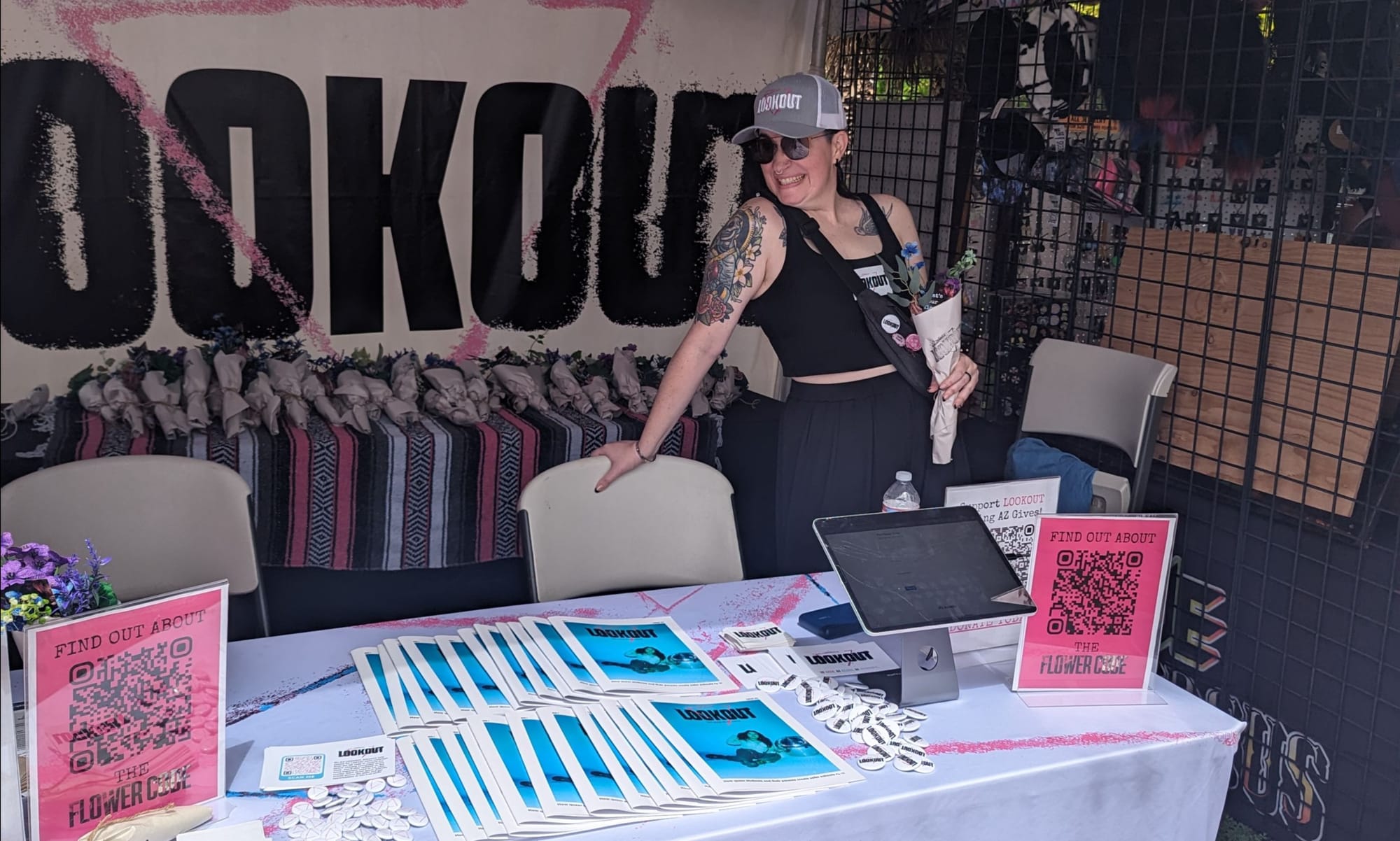After online attacks against her by an incoming school board member, a Mesa teacher is suing
Sharon Benson is named in a lawsuit for allegedly defaming a teacher she is set to have power over.
We looked at the territorial laws and found a rule that would criminalize LGBTQ+ people.

Every week, we highlight the lives of our readers by showing off what queer joy looks like to them. Show off your life by replying back to this email with a photo, or tagging us on Instagram @lookoutphx.

LIFETIME IMPRISONMENT: The Territorial Code of Arizona written in the 19th century that included a provision outlawing all abortions was upheld by the state’s Supreme Court this week.
Reading the territorial code gives insight into how old these laws are, at a time when straight and predominantly white men were the deciders of people’s lives.
When the rules were written, Arizona was almost 50 years from becoming a state, the Civil War was still raging, and women couldn’t even vote. It’s also when criminalizing LGBTQ+ people was common.
We looked at the code and found a law that impacted gay men, which has since been ruled unconstitutional. The code specifically says the territory’s law enforcement could imprison LGBTQ+ people for as long as their natural lives for consensual sex.
The Howell Code of 1864, named after the New York judge appointed by President Abraham Lincoln to write rules for the newly-acquired Arizona territory, abolished slavery in the territory. But within it, there was a rule that said “the infamous crime against nature, either with man or beast, shall subject the offender to be punished by imprisonment in the Territorial prison for a term not less than five years, and which may extend to life.”
The phrase “infamous crime against nature” is a term used that referred to homosexual sex—specifically sodomy. Thirteen states still have laws that include “crime against humanity” definitions, but they are unenforceable. In 2003 the U.S. Supreme Court decided in Lawrence v. Texas that those laws were unconstitutional.
That case's outcome, though, was determined off the same privacy rights established in Roe v. Wade, which was overturned last summer. As a result, Lawrence v. Texas has been the focus for some conservatives who say sodomy laws may come back.
Attorney General Kris Mayes’s office said she believes the territorial ban on abortions is “unconstitutional,” but wouldn’t comment on other aspects of the territorial code, generally.
WHAT WE’RE KEEPING AN EYE ON: There’s a misunderstanding that abortion care doesn’t affect LGBTQ+ people. It couldn't be further from the truth, though.
In 2020, Women’s Health Issues published a study that found, “all sexual minority groups—except lesbians—were generally more likely than heterosexual peers to have a pregnancy, a teen pregnancy, and an abortion.”
The reasons for this, the study said, are primarily to do with access to contraceptive care as well as proper sexual education.
How does this week’s decision affect you? Let us know by replying back to this email.
Have a community event coming up you want LOOKOUT to highlight? Email us.
Without the LGBTQ+ community, there’s less meaning. Guess the word below with only the support of the letters L, G, B, T, Q, I, A and submit your answer to be entered into our monthly drawing for exclusive LOOKOUT swag. The more times you play, the more chances you get to win!
_ _T_B_ _
Hint: Arizona’s official Pride month
If you like independent and accountability-driven queer news, then you'll love LOOKOUT's weekly newsletter.
LOOKOUT Publications is a federally recognized nonprofit news outlet. EIN Number:92-3129757